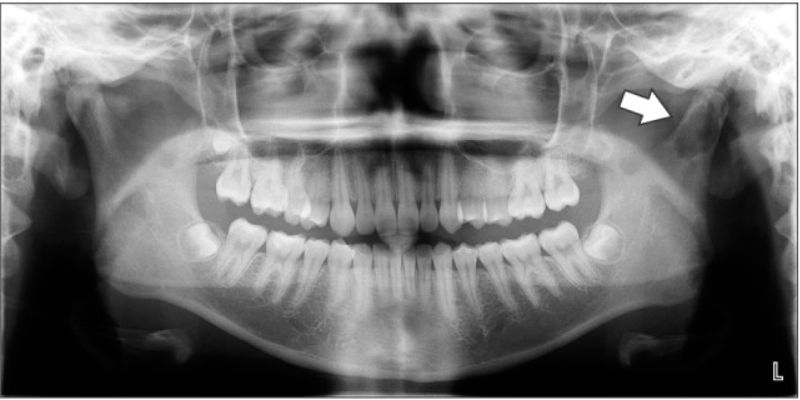Living with anxiety can be both a difficult and debilitating experience. Anxiety affects many of us in various ways, and sometimes it can become so intense that it turns into severe anxiety, which requires specialized treatment.
In this blog post, we will explore severe anxiety and how to recognize if you or someone you know may be suffering. We'll also discuss the potential treatments for those struggling with severe anxiety.
With this knowledge, hopefully, readers will feel empowered to seek help when necessary and begin taking control of their mental health by understanding the condition better.
What is Severe Anxiety and How Does it Affect People

Severe anxiety is a mental disorder in which an individual experiences intense fear, worry, and panic attacks. It often involves physical symptoms such as chest pain, difficulty breathing, sweating, trembling or shaking, and nausea.
People who suffer from severe anxiety may also experience extreme stress and feelings of helplessness as their emotions get out of control. Sometimes, these feelings can be overwhelming and lead to difficulty functioning daily.
Types of Severe Anxiety
Several types of severe anxiety can affect people. These include:
Generalized Anxiety Disorder (GAD)
People with GAD experience overwhelming fear and worry about everyday tasks, activities, and events. They may also have difficulty concentrating or sleeping.
Panic disorder
People with panic disorder feel bouts of intense anxiety, known as panic attacks, that can occur suddenly and without warning. These attacks can cause physical symptoms such as chest pain and difficulty breathing.
Phobias
An excessive phobia is a dread of something that is not dangerous. People living with Phobia may take considerable measures to avoid the thing or circumstance they are terrified of.
Social Anxiety Disorder (SAD)
People with SAD experience extreme fear and anxiety when in social situations. This can make it difficult to form relationships or attend events where other people are present.
Causes of Severe Anxiety
The exact cause of severe anxiety is unknown, but several factors can lead to its development. These include genetics, certain medical conditions, or environmental stressors such as a traumatic event.
Additionally, individuals may be vulnerable to anxiety from childhood trauma or social/familial pressures.
Recognizing Severe Anxiety
The symptoms of severe anxiety can vary from person to person and may even overlap with other mental health disorders such as depression or panic disorder. It is important to recognize the signs of severe anxiety to get the right treatment for yourself or a loved one.
Some of the most common signs include:
● Constant worrying
● Difficulty concentrating or making decisions
● Feeling restless or on edge
● Sleep disturbances such as insomnia
● Avoiding social activities or situations that may trigger anxiety
● Overreacting to events with panic and fear
● Physical symptoms such as headaches, stomach aches, or fatigue
If any of these symptoms affect your daily life and cause distress, seeking help from a mental health professional is important.
Treatment Options for Severe Anxiety

The best way to treat severe anxiety is to work with a qualified healthcare provider like a therapist or psychiatrist. Depending on the individual's needs, treatment may include a combination of psychotherapy, medication, and lifestyle changes.
Psychotherapy can be an effective treatment for severe anxiety as it allows individuals to discuss their thoughts and feelings with a trained professional who can help them identify triggers and develop coping strategies.
Medication may also be used in conjunction with therapy to reduce anxiety symptoms. Common medications for severe anxiety include antidepressants and anti-anxiety drugs.
It is important to remember that medication should only be used under the guidance of a healthcare professional, as it can have side effects and may not be suitable for everyone.
Steps for Coping With Severe Anxiety
1. Identify the Triggers
Identifying what triggers your anxiety is important to start managing it better. Keeping track of situations or events that cause fear and worry can help you determine what brings on your anxiety and make it easier to avoid them.
2. Practice Relaxation Techniques
Relaxation techniques such as deep breathing, progressive muscle relaxation, and guided imagery can effectively manage anxiety. Practicing these techniques regularly can help reduce the intensity of your anxiety and even prevent it from escalating into a full-blown panic attack.
3. Establish Healthy Routines
Creating healthy routines that provide structure and stability can help keep anxiety at bay. Setting regular sleep and wake times, eating healthy meals, exercising regularly, and taking breaks to relax throughout the day can all help reduce stress levels.
4. Reach Out for Help
Severe anxiety can be a difficult experience to manage alone, so it is important to reach out for help from family and friends or a mental health professional if needed. Talk therapy with a qualified therapist can help you gain insight into your anxiety and develop coping skills to manage it better.
5. Make Time for Self-Care
Stressful situations can exacerbate anxiety, so making time for self-care activities that bring you joy and relaxation is important.
Whether listening to music, spending time in nature, or taking a hot bath, self-care can help reduce stress and give you a much-needed break from your worries.
Strategies to Help You Live With Severe Anxiety
1. Create an Anxiety Plan
Creating a plan of action for when you feel overwhelmed can help you control and manage your anxiety better. This could include steps such as deep breathing, going for a walk, or talking to a friend.
Writing down this plan and keeping it somewhere handy can be helpful when dealing with sudden or unexpected episodes of severe anxiety.
2. Make Self-Care a Priority
Taking care of your physical and mental health can help reduce symptoms of severe anxiety, so it is important to prioritize self-care. This includes exercising, meditating, or simply taking breaks from stressful situations.
Prioritizing self-care will improve your mental well-being and help you manage your anxiety more effectively.
3. Practice Mindfulness
Being mindful includes embracing your thoughts and feelings without judgment and being present.
Practicing mindfulness can allow you to become more aware of your anxious thoughts and gain insight into how they affect you, making it easier to cope with them when they arise.
4. Connect With Others
Social support is key when managing severe anxiety, so reaching out and connecting with family, friends, or other community members is important. Talking to someone who understands your experience can help you feel less alone and more understood, reducing stress levels.
5. Seek Professional Help
If your anxiety is getting in the way of everyday activities, it may be time to seek professional help. Cognitive Behavioral Therapy (CBT) or other evidence-based treatments can be effective in managing the symptoms of severe anxiety and helping individuals take back control of their lives.
Working with a mental health professional can provide you with insight into your anxious thoughts as well as the tools to better manage them.
FAQs
How do I know if my anxiety is too severe?
If your anxiety impacts your daily life, causing physical symptoms such as a racing heart or difficulty breathing and interfering with relationships and activities you used to enjoy, it could be considered severe anxiety. If you experience these symptoms, seeking professional help is essential.
Is anxiety 100% treatable?
No, anxiety is not 100% treatable. However, successful treatments such as cognitive-behavioral therapy and medication can help reduce the symptoms associated with severe anxiety.
How long can normal anxiety last?
Normal anxiety can last a few minutes to several hours, depending on the situation. If the feeling persists and begins interfering with your daily life, seeking professional help is recommended.
Conclusion
Living with severe anxiety can be a challenging experience. Knowing the signs and symptoms of this disorder and potential treatments are key to taking control of the condition.
With this knowledge, readers can be empowered to seek help and start or continue their journey toward feeling better. Don't hesitate to ask for help if you or someone you know is struggling with severe anxiety – it can make all the difference.




